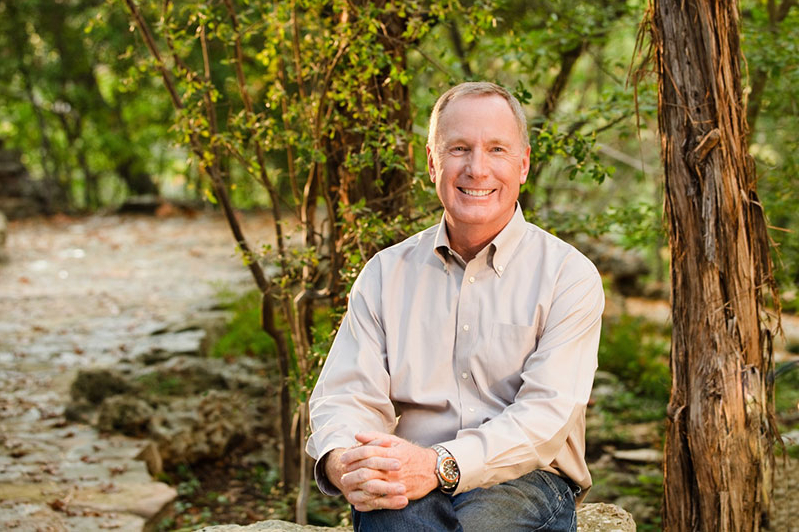
As the father of three daughters, I reserved the right to interview their dates. Seemed only fair to me. After all, my wife and I'd spent 16 or 17 years feeding them, dressing them, funding braces, and driving them to volleyball tournaments and piano recitals. A five-minute face-to-face with the guy was a fair expectation. I was entrusting the love of my life to him. For the next few hours, she would be dependent upon his ability to drive a car, avoid the bad crowds, and stay sober. I wanted to know if he could do it. I wanted to know if he was decent.
This was my word: "decent." Did he behave in a decent manner? Would he treat my daughter with kindness and respect? Could he be trusted to bring her home on time? In his language, actions, and decisions, would he be a decent guy?
Decency mattered to me as a dad.
Decency matters to you. We take note of the person who pays their debts. We appreciate the physician who takes time to listen. When the husband honors his wedding vows, when the teacher makes time for the struggling student, when the employee refuses to gossip about her co-worker, when the losing team congratulates the winning team, we can characterize their behavior with the word decent.
We appreciate decency. We applaud decency. We teach decency. We seek to develop decency. Decency matters, right?
Then why isn't decency doing better in the presidential race?
The leading Republican candidate to be the next leader of the free world would not pass my decency interview. I'd send him away. I'd tell my daughter to stay home. I wouldn't entrust her to his care.
I don't know Mr. Trump. But I've been chagrined at his antics. He ridiculed a war hero. He made a mockery of a reporter's menstrual cycle. He made fun of a disabled reporter. He referred to the former first lady, Barbara Bush as "mommy," and belittled Jeb Bush for bringing her on the campaign trail. He routinely calls people "stupid," and "dummy."1 One writer catalogued sixty-four occasions that he called someone "loser."2 These were not off-line, backstage, overheard, not-to-be-repeated comments. They were publicly and intentionally tweeted, recorded, and presented.
Such insensitivities wouldn't be acceptable even for a middle school student body election. But for the Oval Office? And to do so while brandishing a Bible and boasting of his Christian faith?
I have no inside track on the intricacies of a presidential campaign. I'm a pastor. I don't endorse candidates or place bumper stickers on my car. But I am protective of the Christian faith. If a public personality calls on Christ one day and calls someone a "bimbo" the next, is something not awry? And to do so, not once, but repeatedly? Unrepentantly? Unapologetically? Can we not expect a tone that would set a good example for our children? We stand against bullying in schools. Shouldn't we do the same in presidential politics?
Could concerns not be raised about other Christian candidates? Absolutely. But the concern of this article is not policy, but tone and decorum. When it comes to language, Mr. Trump is in a league of his own. "It is out of the overflow of the heart the mouth speaks," Jesus said.3 Let speech befit the call. We, as Christians, would do well to summon any Christian leader to a higher standard. This includes pastors (especially this one), teachers, coaches and, by all means, presidential candidates.
All of them.
The stock explanation for Mr. Trump's success is this: he has tapped into the anger of the American people. As one man said, "We are voting with our middle finger." Sounds more like a comment for a gang-fight than a presidential election. Anger-fueled reactions have caused trouble ever since Cain was angry at Abel.
We can only hope, and pray, for a return to verbal decency. Perhaps Mr. Trump will better manage his comments. (Worthy of a prayer, for sure.) Or, perhaps the American public will remember the key role of the president: to be the face of America. When he/she speaks, he/she speaks for us. Whether we agree or disagree with the policies of the president, do we not hope that they speak in a way that is consistent with the status of the office?
As far as I remember, I never turned away one of my daughter's dates. They weren't perfect, but they were decent fellows. That was all I could ask.
It seems that we should ask the same.
Originally posted at MaxLucado.com on February 26, 2016.
Max Lucado is the best-selling Christian author with 32 books and preacher at Oak Hills Church in San Antonio, Texas. More than 100 million readers have found comfort in the writings of Lucado.






